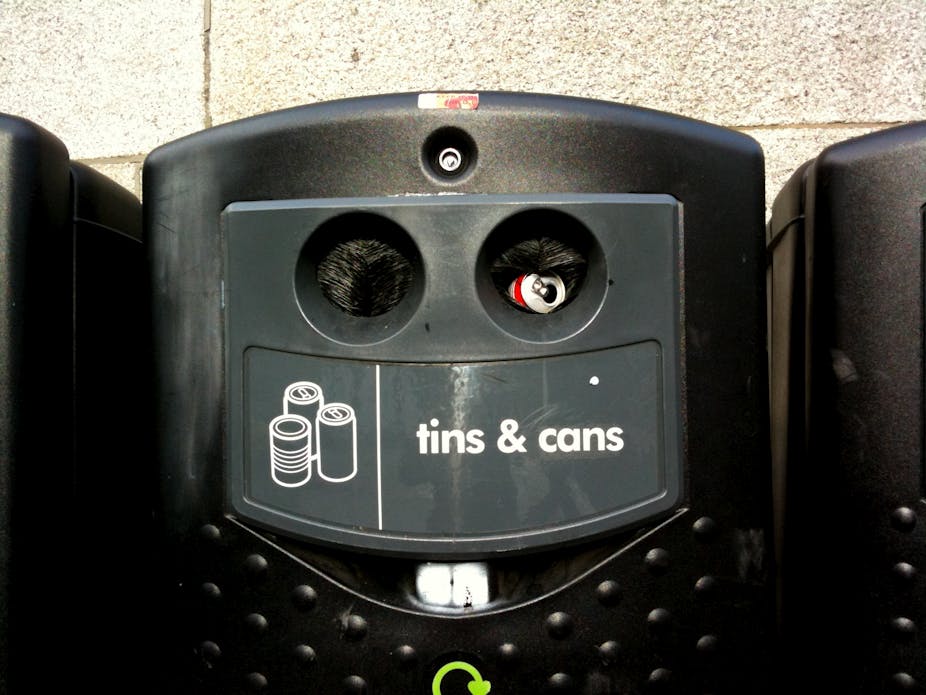Popular conceptions of government tend to derive from media representations of politicians in action, political speeches, yesterday in parliament, elections, scandal, controversy and so on. And the politics involved are about how people and institutions behave towards each other.
Yet another, quite different, and much more pervasive form of government is often overlooked. This has to do with the way our lives are increasingly regulated in relation to very ordinary objects and everyday technology. These aspects of daily life are mundane in the sense that they are ordinary, routine, unremarkable, run-of-the-mill, even boring; more interestingly, they are also mundane in the etymological sense of the term (from the latin mundus meaning “the world”). These things seem to be just what they are – of the world.
But how prevalent is this governance? We set out to examine the place of ordinary everyday things in governance, and with the assistance of a team of postgraduates, we spent several years looking at what actually happens on the ground. We talked to householders about their waste disposal practices, hung out in recycling centres, worked with city councils, visited safety camera partnerships, and spent time with airport managers and passengers as they moved through airports.
Our research focused on three main areas: the organisation and categorisation of different varieties of waste and recycling; the ways our vehicles are subject to speed monitoring and parking regimes; and the management of passenger flow through airports. In short, we investigated trash, traffic and transit.
Trash, traffic and transit
We found a growing disquiet, often marked exasperation, about the increasing complexities of ordinary stuff. Whereas we used to be able just to put out the rubbish, we now need to be experts in all the various subcategories of different kinds of recyclables (what exactly counts as soggy cardboard?); our driving seems to be increasingly controlled by speed (“safety”) cameras; we have to understand what count as a “forbidden” liquid or container in the context of airport security.
Now more than ever we seem to be governed by the small everyday routines, actions and objects with which we are surrounded, and the consequences for non-compliance lend themselves to sensationalist media headlines.
The problem gains particular significance when the same ordinary things are treated quite differently in different places. Recycling and waste collection is organised differently not just between countries, but even between different councils within the same area of the UK. Systems for monitoring speeding and other forms of traffic control vary markedly across different regions: motorists driving at the same speed can be prosecuted in one region but not just across the border in another.
In airport security, a more relaxed attitude in Australia contrasts with the stricter ones found in Europe. On internal flights within Australia it’s possible to carry liquids, such as bottles of water, onto a flight – whereas in Europe some liquids have been identified as potentially explosive resulting in a sweeping ban. It’s a measure of the regulatory forces at play that what is ordinary and unproblematic in one situation becomes a source of terror in the other.
Mundane government
This is the government you don’t realise is all around you. Increasingly, ordinary and unremarkable stuff carries requirements for correct action and behaviour. We might call this “government by stealth”. But this description rather too easily implies a sort of conspiracy theory; it suggests concerted and coherent strategies on the part of faceless bureaucrats eager to control the unknowing populous.
Instead, our observations of mundane governance in practice reveal a striking degree of mess and muddle. Those we might call the operatives of mundane governance frequently disagreed about the evidence base for recycling policy, for example. They engaged in elaborate reworking of the rules governing the implementation and use of speed cameras, and found themselves increasingly frustrated in their attempts to devise new ways of making airport passengers follow “wayfinding technologies”.
Instances of disruption of mundane governance – failure of traffic light systems; the inadvertent suspension of parking regulations across a whole town; unsuccessful efforts to trial national ID cards – revealed a similar story of incoherence and uncertainty.
So instead of a coherent system of government conspiracy, we found a chaotic amalgam of shifting uncertainties and complexity. Regulation in relation to ordinary things is, at best, a mess. But our observations of these practices suggest we need a different approach to politics.
Politics can no longer be thought of as simply antecedent to objects which are fixed and known. We can no longer be content with the idea that politics swirl around, so to speak, otherwise mute, obvious, objectively given things.
Instead, we now need a conception of politics which recognises the crucial importance of understanding how ordinary objects and things come to seem what they are – and how they in fact participate in governing our lives.

